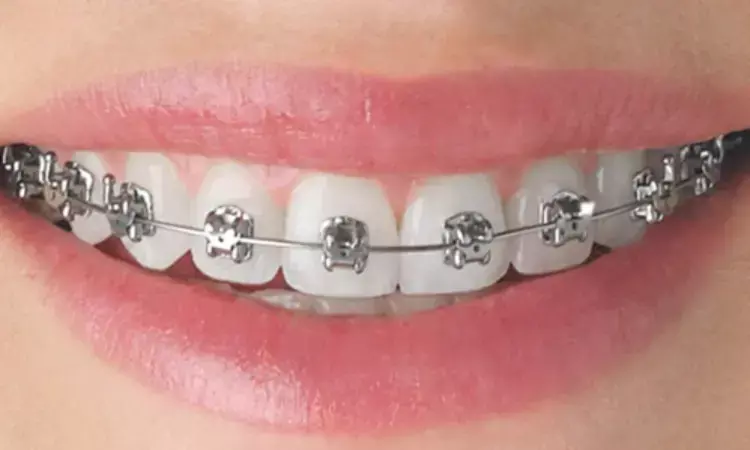- Home
- Medical news & Guidelines
- Anesthesiology
- Cardiology and CTVS
- Critical Care
- Dentistry
- Dermatology
- Diabetes and Endocrinology
- ENT
- Gastroenterology
- Medicine
- Nephrology
- Neurology
- Obstretics-Gynaecology
- Oncology
- Ophthalmology
- Orthopaedics
- Pediatrics-Neonatology
- Psychiatry
- Pulmonology
- Radiology
- Surgery
- Urology
- Laboratory Medicine
- Diet
- Nursing
- Paramedical
- Physiotherapy
- Health news
- Fact Check
- Bone Health Fact Check
- Brain Health Fact Check
- Cancer Related Fact Check
- Child Care Fact Check
- Dental and oral health fact check
- Diabetes and metabolic health fact check
- Diet and Nutrition Fact Check
- Eye and ENT Care Fact Check
- Fitness fact check
- Gut health fact check
- Heart health fact check
- Kidney health fact check
- Medical education fact check
- Men's health fact check
- Respiratory fact check
- Skin and hair care fact check
- Vaccine and Immunization fact check
- Women's health fact check
- AYUSH
- State News
- Andaman and Nicobar Islands
- Andhra Pradesh
- Arunachal Pradesh
- Assam
- Bihar
- Chandigarh
- Chattisgarh
- Dadra and Nagar Haveli
- Daman and Diu
- Delhi
- Goa
- Gujarat
- Haryana
- Himachal Pradesh
- Jammu & Kashmir
- Jharkhand
- Karnataka
- Kerala
- Ladakh
- Lakshadweep
- Madhya Pradesh
- Maharashtra
- Manipur
- Meghalaya
- Mizoram
- Nagaland
- Odisha
- Puducherry
- Punjab
- Rajasthan
- Sikkim
- Tamil Nadu
- Telangana
- Tripura
- Uttar Pradesh
- Uttrakhand
- West Bengal
- Medical Education
- Industry
Remote digital monitoring effective in plaque control during orthodontic treatment: Study

Remote monitoring system is effective for plaque control during orthodontic treatment, suggests a study published in the BMC Oral Health.
Remote digital monitoring during orthodontic treatment can help patients in improving their oral hygiene performance and reducing the number of appointments due to emergency reasons, especially in time of COVID-19 pandemic where non-urgent appointments might be discouraged.
Thirty patients scheduled to start an orthodontic treatment were divided into two groups of fifteen.
Compared to controls, study group patients were provided with scan box and cheek retractor (Dental Monitoring®) and were instructed to take monthly intra-oral scans.
Plaque Index (PI), Gingival Index (GI), and White Spot Lesions (WSL) were recorded for both groups at baseline (t0), every month for the first 3 months (t1, t2, t3), and at 6 months (t4). Carious Lesions Onset (CLO) and Emergency Appointments (EA) were also recorded during the observation period. Inter-group differences were assessed with Student's t test and Chi-square test, intra-group differences were assessed with Cochran's Q-test.
· The results of the study are as follows:
· Study group patients showed a significant improvement in plaque control at t3 and t4, compared to control group.
· No significant difference was observed in the number of WSL between the two groups.
· No cavities were detected in the study group, while five CLO were diagnosed in the control group.
· A decreased number of EA was observed in the study group, but the difference was not significant.
The researchers concluded that integration of a remote monitoring system during orthodontic treatment was effective in improving plaque control and reducing carious lesions onset. The present findings encourage orthodontists to consider this technology to help maintaining optimal oral health of patients, especially in times of health emergency crisis.
Reference:
Effects of remote digital monitoring on oral hygiene of orthodontic patients: a prospective study by Sangalli L et. al published in the BMC Oral Health.
https://doi.org/10.1186/s12903-021-01793-9
Dr. Shravani Dali has completed her BDS from Pravara institute of medical sciences, loni. Following which she extensively worked in the healthcare sector for 2+ years. She has been actively involved in writing blogs in field of health and wellness. Currently she is pursuing her Masters of public health-health administration from Tata institute of social sciences. She can be contacted at editorial@medicaldialogues.in.
Dr Kamal Kant Kohli-MBBS, DTCD- a chest specialist with more than 30 years of practice and a flair for writing clinical articles, Dr Kamal Kant Kohli joined Medical Dialogues as a Chief Editor of Medical News. Besides writing articles, as an editor, he proofreads and verifies all the medical content published on Medical Dialogues including those coming from journals, studies,medical conferences,guidelines etc. Email: drkohli@medicaldialogues.in. Contact no. 011-43720751


